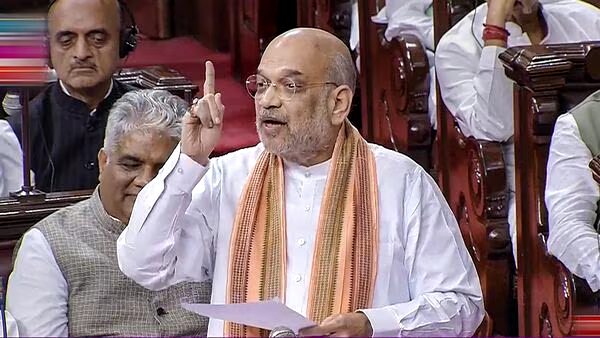UPA's Name Change Ignites Debate on Past Scandals and Political Rebranding
New Delhi: In a spirited address to the Lok Sabha, Home Minister Amit Shah has ignited a new chapter in the political arena by questioning the rebranding of the 'UPA' alliance. Shah's pointed remarks have reopened discussions about the motivations behind the change and the alliance's historical controversies.
Referring to the alliance's original name, Shah mused, "Alliance Name: 'UPA' was a good name...why did they need to change the name of the alliance?" These words have kindled curiosity about the strategy behind the name alteration and the potential implications it holds for the political landscape.
Shah went on to remind the gathering of a string of scandals that reportedly occurred during the time of the 'UPA' coalition, amassing a staggering total of over Rs 12 lakh crores. He rattled off a list of alleged transgressions that had raised eyebrows and dominated headlines, including the Bofors scam, the 2G spectrum scandal, the CWG scam, the Coal scam, the Adarsh scam, the National Herald controversy, Vadra's DLF affair, and the infamous Fodder scam.
"They don't have any other way than changing the name of the alliance," Shah asserted, sparking a wave of interpretations regarding the alliance's strategy to distance itself from its past associations.
In a firm counterpoint, Shah drew a clear distinction between the alliance he is associated with and the controversies of the past. "We don't have to change our name as we are not involved in any scams," he declared, emphasizing the commitment to maintaining a clean track record.
The Home Minister further highlighted the achievements of the current NDA government, proclaiming, "NDA govt has given a stable government to the country." This statement underscores the focus on governance, stability, and progress that the government is endeavoring to deliver.
Shah's address has kindled a fresh discourse on the complexities of political branding, the consequences of name changes, and the shadows of the past that can linger over political entities. As the nation absorbs his remarks, discussions about the delicate balance between reforming an image and confronting a legacy continue to take center stage in the realm of Indian politics.










